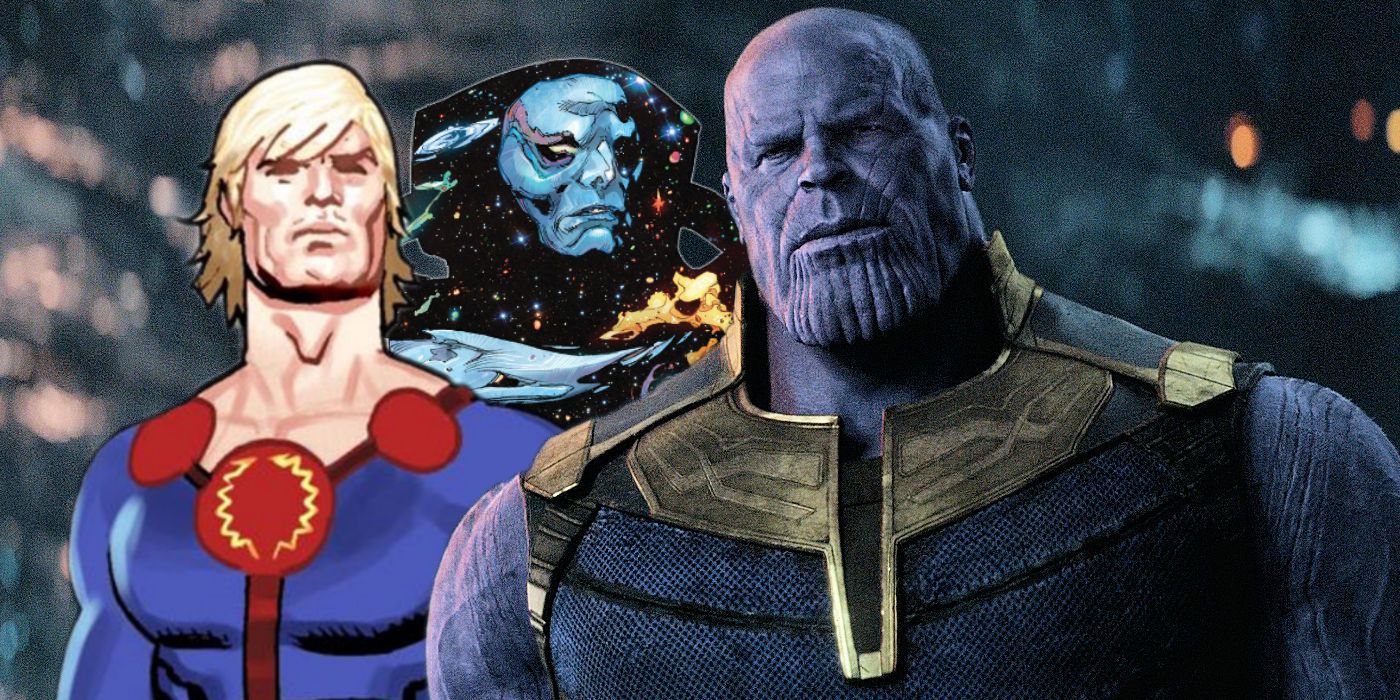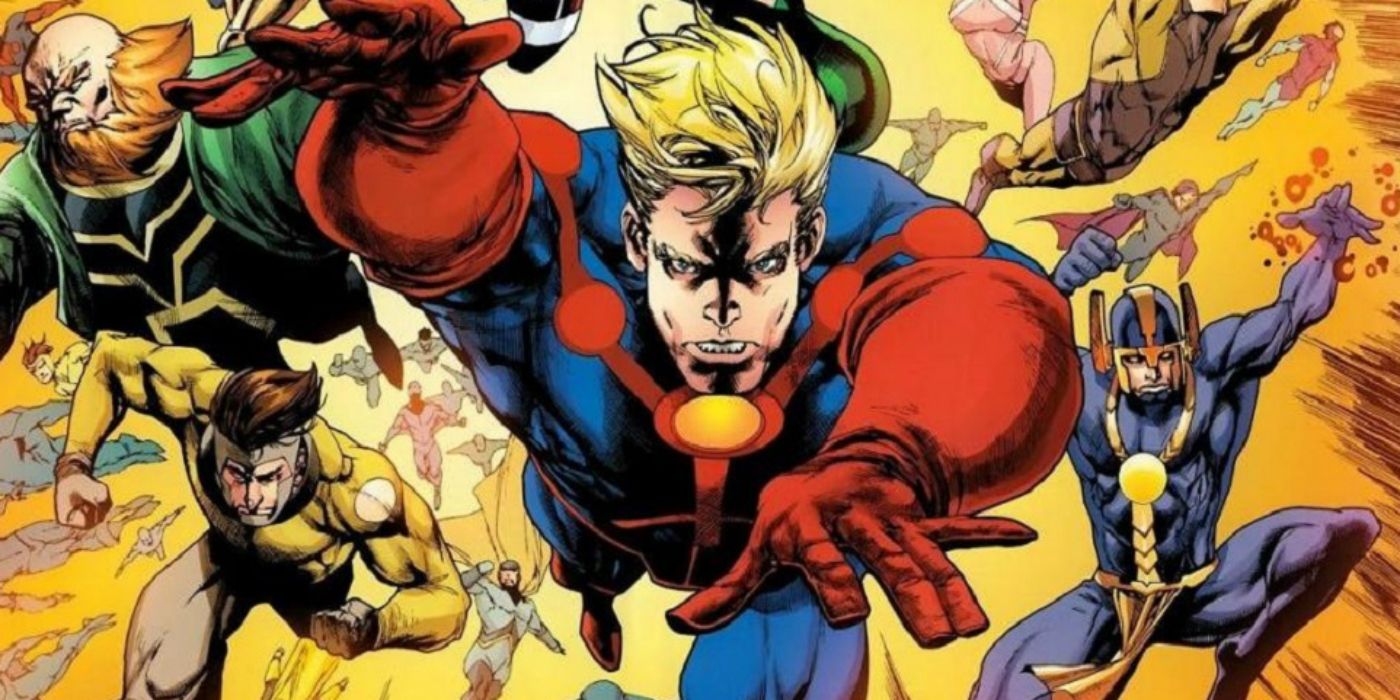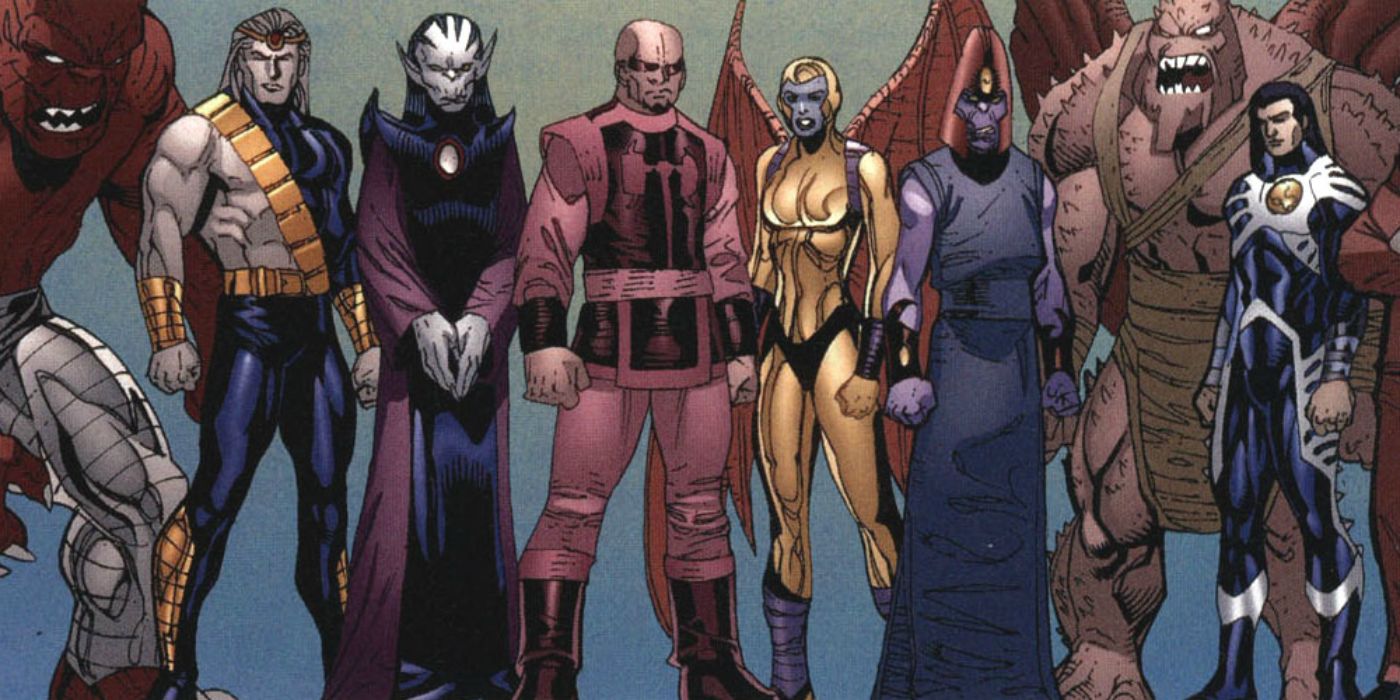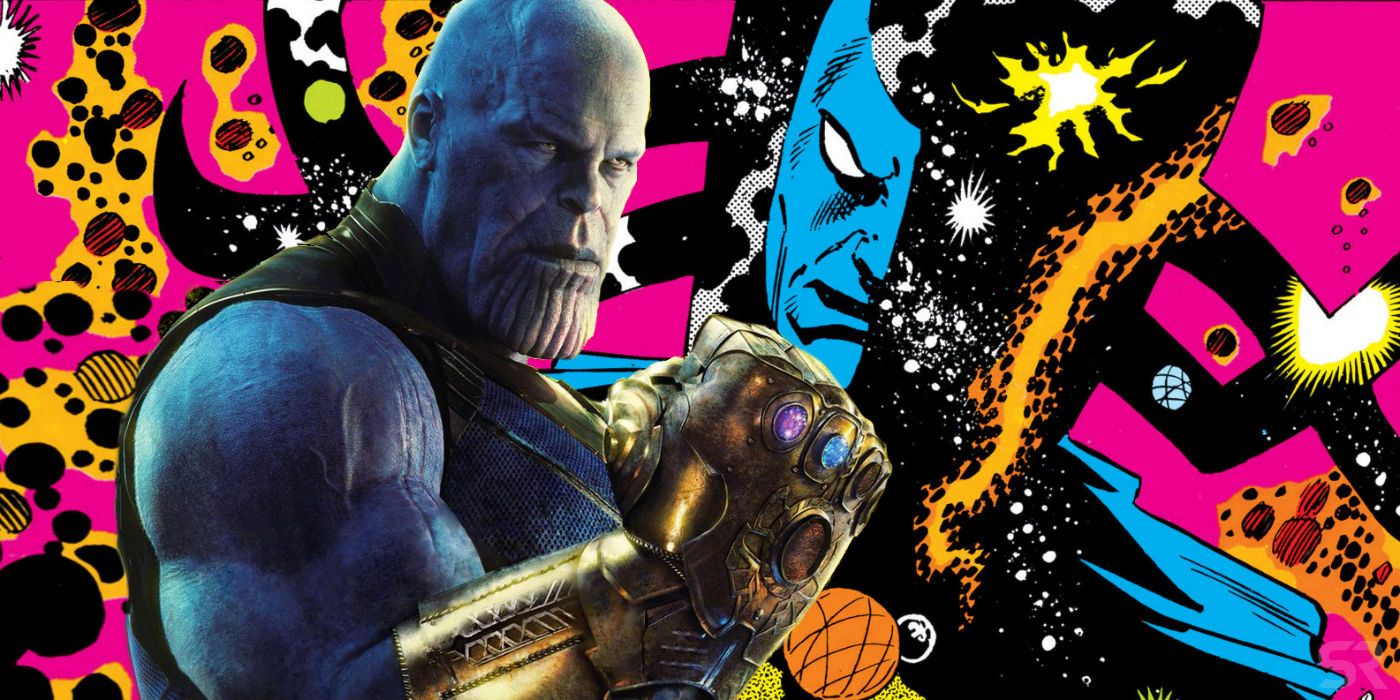Marvel has published the first MCU tie-in novel, Thanos: Titan Consumed, and it teases how a wealth of major comic book characters could enter the MCU. It's important to note that Marvel has clarified that this book shouldn't be considered strict canon; at the same time, though, the author - Barry Lyga - seems to have believed it was when he wrote it, and he worked closely with Marvel Studios. The extent of this cooperation is clear; the book was finished before the release of Avengers: Infinity War, and yet it discusses everything from the snap to Thanos's beat-down of the Hulk, and even accurately reproduces the scene in which Thanos recruits Gamora.
Lyga's novel is a fascinating one, exploring the history of Thanos, the Mad Titan. It tells the story of Thanos's childhood, subtly weaving in elements from the comics, and then reveals how he was exiled for his insane idea of killing half the planet's population. From there, the young Thanos is unleashed upon the cosmos, and swiftly ascends to power to become a terrifying warlord. The plot is heavily adapted from Jason Aaron's Thanos Rising miniseries - an appropriate choice given that was a prelude to Jonathan Hickman's Infinity event, which served as inspiration for Avengers: Infinity War.
Related: Thanos Origin Book May Tease Avengers 4's New Villains
While Thanos Rising is entirely focused upon its titular hero, it's essentially the most complex look to date at the cosmic side of the MCU. As such, Lyga carefully weaves in a number of subtle references that foreshadow cosmic powers and alien races from the comics potentially entering the MCU. Here, we look at some of the most exciting takeaways.
- This Page: Eternals & Deviants In Thanos' Origin Book
- Next Page: Eternity & Death In Thanos' Origin Book
The Eternals in Thanos: Titan Consumed
In the comics, Thanos's homeworld of Titan is a colony belonging to the Eternals. The Eternals are an evolutionary offshoot of humanity, created millennia ago by the Celestials. Eternals are - as their name suggests - tremendously long-lived and phenomenally powerful. In fact, there's long been a link between the Eternals and Marvel's many Pantheons. Back in 1978, Roy Thomas penned a Thor annual comic in which he hinted that the Pantheons themselves may be some sort of Eternal colonies. He was careful not to make the connections explicit, but the implication was definitely there; later writers have tied the Eternals to the Greek Pantheon and its most famous Marvel hero, Hercules.
Although Thanos Rising is careful not to confirm that Titan is an Eternal colony, the book strongly implies it. It's revealed that one of the reasons Titan was so vulnerable to ecological catastrophe is that it had been Terraformed, a process that was still ongoing and thus restricted the space the people of Titan could build on. The main inhabited area was known as the "Eternal City," and rather than build outwards across new areas, the population had been forced to build upwards. Their city had reached for the stars, simply because that was easier than accelerating the Terraforming process. Interestingly enough, if the people of Titan truly are as long-lived as the Eternals, it would explain why population pressure became such a major issue; their birth rate would far outstrip their death rate.
Related: The Eternals Could Be A Prequel To The Entire MCU
Just as in the comics, Thanos's father is A'Lars, one of the most distinguished citizens of Titan. A'Lars is name-dropped in Avengers: Infinity War, so he's already part of the MCU's canon; however, Thanos: Titan Consumed reveals just how harsh and uncaring a father he really was. As a result of his loveless upbringing, Thanos never develops a sense of empathy. Although he loves his people in his own twisted way, he genuinely can't understand why they flinch from his insane idea of killing half the population. Interestingly enough, it's possible the first section of the book is the reason Marvel branded it non-canon. Marvel Studios is pushing ahead with an Eternals movie, and the latest casting breakdowns hint at Starfox, Thanos's brother. Starfox doesn't appear in Thanos: Titan Consumed, though; presumably Marvel's plans for the future began to change after they passed their notes on to Lyga.
The Deviants in Thanos: Titan Consumed
The Deviants are another evolutionary offshoot of humanity created by the Celestials, an equally powerful race who are locked in endless war with the Eternals. Crucially, though, there are genetic links between the Eternals and the Deviants; that means an Eternal family can indeed give birth to a Deviant child. Thanos is one such Deviant, and the novel reveals that his purple skin marked him out as a horrific mutation to the rest of his people; purple is the color of death, and Thanos's skin is the same color as the veils Titanians wore to mourn and grieve. The sight of her Deviant child sent Thanos's mother mad.
Related: Thanos' Ship In Infinity War May Feature Eternals Clues
Although the Deviants aren't explicitly mentioned in Thanos: Titan Consumed, there is one subtle inference. In one scene, a frustrated A'Lars tries to explain to his son why the Titanians are afraid of him. "Every species in the universe has an instinctive fear of its predator," he observed. The idea of the Deviants as predators, and the Eternals as their prey, is one that comic book writer Jim Starlin himself subtly hinted at. His stories hinted that the whole reason the Eternals established a colony on Titan was to escape the Deviants, and that they've been hiding from them ever since. There is another, even darker, interpretation. Given Thanos's skin is the color of death, A'Lars could also have been alluding to the idea that most races fear death, and flee from its awareness. But these two interpretations are hardly mutually exclusive; the A'Lars of Thanos: Titan Consumed is a subtle, craft man, and his words frequently carry double meanings.
Page 2 of 2: Eternity & Death in Thanos's Origin Book
Eternity in Thanos: Titan Consumed
In Marvel Comics, Eternity is a single being who represented the entire universe. One of Marvel's abstract entities, Eternity is the collective consciousness of all life in existence. This phenomenally powerful cosmic being is one of the supreme authorities in the cosmos, exceeded only by the Living Tribunal (alluded to in Doctor Strange). That said, even Eternity's power pales in comparison to the might of the Infinity Gauntlet.
It's quite rare for any Marvel character to interact with Eternity, and indeed he typically appears to powerful sorcerers like Doctor Strange or the Ancient One, or makes his will known in cosmic events like the trial of Galactus. As such, it's hardly surprising that Eternity hasn't appeared in the MCU to date, nor does he crop up in Thanos: Titan Consumed. There is, however, a single reference to the being. "Oh, for Eternity's sake," one character fumes. The character in question is an obscure one who insists on being addressed as "His Lordship," and he seems to represent a lot of ancient, fanciful notions about the way the universe works. And so, the fact he uses what's clearly meant to be antiquated profanity may suggest that belief in Eternity has become a dwindling cosmic religion.
Death in Thanos: Titan Consumed
The comic book version of Thanos is very different to the character seen in the MCU. The Thanos of the comics is infatuated with the avatar of Death, and kills in an attempt to win her favor and love. The Thanos of the MCU, in contrast, actually believes he's fighting against death and entropy; he genuinely believes that his killing off half the universe's population will save the rest. In short, the Thanos of the MCU views himself as a champion of life.
In the comics, Thanos fell in love with Death when she infiltrated his life as one of his school friends, and gradually began to push him into committing acts of murder. Barry Lyga subtly reworks that idea, with Thanos growing close to a girl named Gwinth, and even sharing a kiss with her. Later, the Mad Titan begins to dream of Gwinth, who gradually transforms into a skeletal being whose description will be intimately familiar to comic book readers. The dream is clearly meant to be of the avatar of Death. But Lyga presents Death as attempting to turn Thanos away from his path. "You can't save everybody," she tells him, trying to get him to drop his campaign. Instead, he hits upon the idea of enforcing what he calls the Titan Protocol, killing half the universe in order to spare the rest. His goal, he tells his followers, is "to defy death and allow for life."
This is probably the most fascinating, not to mention subtle, idea in the book; it also shows just how well Barry Lyga understood Thanos's psychology, and how closely he'd coordinated with Marvel Studios while working on Thanos: Titan Consumed. While it's true that Marvel's plans have changed since Lyga wrote the novel, all of these references still have meaning, and hint that some of these cosmic ideas may yet be woven into the rich fabric of the MCU.







